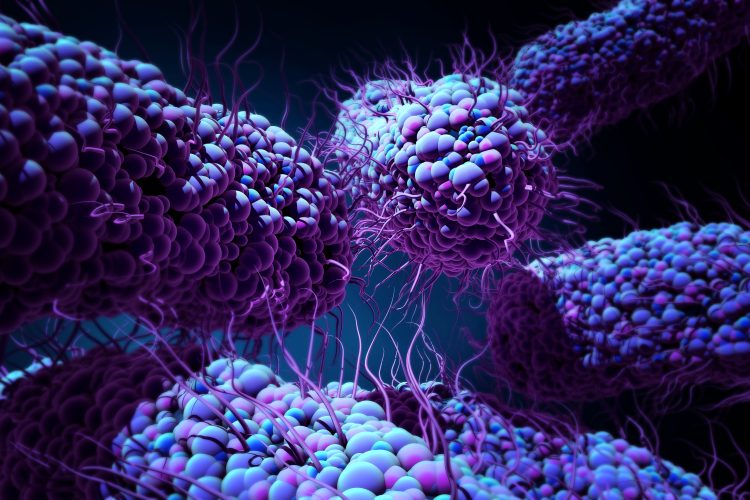Recce Pharmaceuticals’ synthetic approach to combatting AMR
Posted: 5 June 2024 | James Graham (Recce Pharmaceuticals) | No comments yet
As antimicrobial resistance continues to advance, novel therapeutics are needed that stop infection and do not contribute to resistance. Australian biotech Recce Pharmaceuticals is paving the way for a new class of synthetic anti-infectives and providing hope for those with resistant infections. Recce’s lead candidate, RECCE® 327 (R327), is a synthetic polymer designed to target a variety of infections caused by even the most difficult-to-treat bacteria, including their mutated forms.


What is the effectiveness of R327 against the full suite of ESKAPE pathogens in independent bacterial efficacy studies?
R327 was studied against several Gram-negative and Gram-positive microbial species, including the ESKAPE pathogens, a group of highly resistant bacteria and the leading cause of hospital-acquired infections globally. These include Enterococcus faecium, Staphylococcus aureus, Klebsiella pneumoniae, Acinetobacter baumannii, Pseudomonas aeruginosa, and Enterobacter species. Results demonstrated that R327 reduced viable cell counts across all tested species and conditions, with decreases observed in as little as 10 minutes.
Overall, R327 demonstrated a three-log or 99.9 percent reduction against all ESKAPE strains over 24 hours at various concentrations and times, even in slow-growing bacteria, a current limitation of antibiotics. When compared to ampicillin and ciprofloxacin, R327 outperformed both antibiotics in cell-killing activity against stationary cells.
How do you prioritise which therapeutic areas or diseases to focus on in your drug discovery efforts?
The rapid and sustained anti-bacterial effects of R327 on resistant bacteria demonstrate significant potential to improve patient outcomes for those with infections that are not responding to current antibiotics. We’ve prioritised our focus based on this early preclinical data of R327 and let the data guide us.
Additionally, we have observed that R327 safely accumulates in the urinary tract and bladder, providing an opportunity to explore how R327 may benefit patients with uncomplicated or complicated urinary tract infections and urosepsis.
Could you tell us about the ongoing preclinical studies regarding Neisseria gonorrhea, and why is this an important bacterium to target?
Antimicrobial resistance to gonorrhea is a serious and growing problem, rendering many classes of antibiotics ineffective with the risk of becoming untreatable. The World Health Organization (WHO) has recognized gonorrhea as a significant public health problem that is on the rise worldwide, with strains resistant to many antibiotics emerging. In 2020, the WHO estimated 82.4 million new infections with Neisseria gonorrhoeae (N. gonorrhoeae) among adults aged 15 to 49.
Our preclinical studies performed in infected mice demonstrated significant bactericidal activity against N. gonorrhoeae, with a 4-log (99.99 percent) and 3.5-log (>99.9 percent) reduction in the treatment group.
Could you tell us how the development of the R435 and R529 candidates is progressing?
R435 and R529 remain in preclinical stages, with primary focus right now on progressing R327 through the clinic. We have several international trials ongoing or being initiated in a range of indications. New delivery methods are also being developed for our anti-infective compounds, including a recently developed nebulization. A recent preclinical pilot study conducted at Murdoch Children’s Research Institute in Melbourne, Australia demonstrated a substantial reduction in Mycobacterium abscessus (M. abscessus) colonisation in both lungs of mice.
What type of viral indications will R529 combat?
We have not established an indication for R529, but the compound has shown success in preclinical studies against COVID-19. In a previous animal study, R529 demonstrated significant activity against SARS-CoV-2 in Syrian golden hamsters. Recce’s portfolio of anti-infectives have also demonstrated anti-viral activity following in-vitro testing against Influenza, conducted by an independent Contract Research Organization in the USA.
About the author
James Graham, CEO of Recce Pharmaceuticals


Recce Pharmaceuticals.
James Graham is the CEO of Recce Pharmaceuticals. James previously served as Executive Director at Recce, where he helped advance the company’s anti-infective pipeline and establish strategic partnerships. He has extensive experience in marketing, business development, and commercialisation of early-stage technologies with global potential. He received his Bachelor of Commerce in Entrepreneurship and Innovation from Murdoch University. Mr. Graham has served on Recce’s Board of Directors for six years with a focus on expanding Recce’s commercial opportunities and clinical initiatives.
Related topics
Antibiotics, Antimicrobials, Drug Development, Synthetic Biology
Related conditions
Antimicrobial resistance (AMR), Gonorrhoea, Influenza
Related organisations
Recce Pharmaceuticals
Related people
James Graham (Recce Pharmaceuticals)








